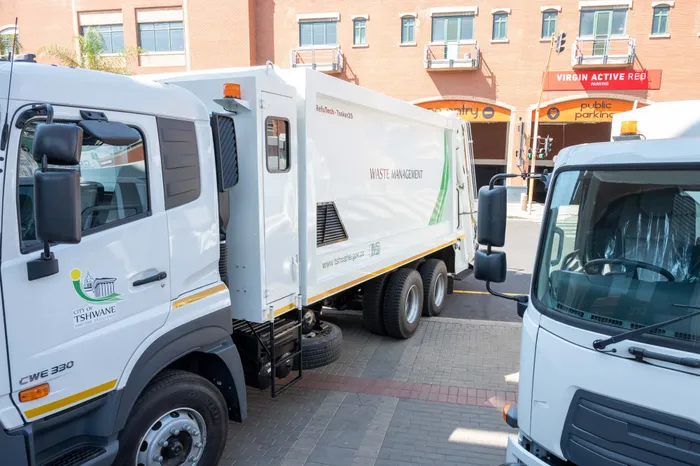Urgent reforms needed in Tshwane's waste management: Fleet mismanagement and theft exposed

The recently approved Tshwane council report points out that the metro's waste management department struggles with poor fleet oversight and operational inefficiencies.
Image: Helenus Kruger / City of Tshwane
The City of Tshwane's waste management department is struggling with poor fleet management, with inadequate supervisory oversight leading to neglected basic fleet control functions.
According to a recently approved council report, vehicle inspections are not being conducted, vehicle abuse is rampant, and fuel theft is a regular occurrence at the waste fuel depot.
The report, compiled by Abel Malaka, head of the metro's Environment and Agriculture Management Department, highlights years of underinvestment and inadequate maintenance as the root cause of the problem.
This has compromised the reliability of solid waste management services, necessitating significant reforms to reverse the decline.
The National Treasury has stepped in, introducing reforms for metropolitan municipalities, including performance-based incentives for good decision-making and performance.
Malaka noted that the reforms aim to tackle operational inefficiencies and structural issues, with specific milestones to be met by July 31, 2025.
However, the municipal office of the governance support officer (GSO) has raised concerns that the strategy may not effectively address the challenges related to waste fleet mismanagement if it fails to accurately identify the problems.
The GSO office pointed out that the correlation between poorly maintained landfill sites and vehicle condition is not reflected in the strategy.
This is not the first time the city's waste management department has faced criticism.
Two months ago, Member of the Mayoral Committee for Agriculture and Environment Management, Obakeng Ramabodu, reported finding over 80 workers at a Region 3 waste management depot with nothing to do due to a lack of resources and vehicles.
In a bid to stem the tide of theft, Deputy Mayor Eugene Modise last week warned workers against stealing equipment parts, equipment, or diesel at a handover ceremony for R11 million worth of horticultural equipment, saying such actions will lead to trouble with city management.
Malaka noted that waste management services in metropolitan municipalities are experiencing deteriorating infrastructure due to inadequate maintenance and investment backlogs caused by budget constraints.
This situation, he said, has significantly contributed to the decline in service performance.
Despite the challenges, Ramabodu welcomed the strategy, expressing hope that it will enhance waste management, particularly in waste collection and billing.
He said the city is open to innovations that can improve our billing system, leveraging the latest methods to ensure efficiency.
The strategy, he noted, is not just an internal initiative, but a directive from National Treasury, aiming for an independent and effective waste management strategy with a well-understood billing system.
rapula.moatshe@inl.co.za